The 10 most important libertarians.
Some time ago I promised to do a series of lists regarding libertarianism. The first list I did was about the five most important libertarian publications in the world. Of course it is my opinion but like all libertarians I’m very sure of my opinion. : )
This list is sure to be controversial since I want to list the individuals I think made the most important contributions to libertarian ideas. Now one could list many worthy individuals over the centuries but I want to concentrate on the few that really stand out in developing and spreading the idea of individual liberty. And some people on the list may not be “pure” enough to satisfy everyone while some off the list might be far “purer” ideologically. But this is not a litmus test of ideological purity.
Again I refrain from placing them in any particular order. So don’t assume the first listed is the most important while the last on the list is the least important.
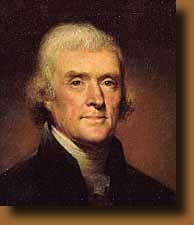
The first name that comes to mind is Thomas Jefferson. And the reason is simple: the eloquent words of his Declaration of Independence have inspired generations of people to dedicate their lives to promoting human liberty. If Jefferson had done nothing else in his life those words alone would warrant his inclusion on this list. To this day it is hard to find a more succinct explanation of libertarianism: “We hold these truths to be self-evident, that all men are created equal, that they are endowed by their Creator with certain unalienable Rights, that among these are Life, Liberty and the pursuit of Happiness. That to secure these rights, Governments are instituted among Men, deriving their just Powers from the consent of the governed, -- That whenever any Form of Government becomes destructive of these ends, it is the Right of the People to alter or to abolish it, and to institute new Government, laying its foundation on such principles and organising its powers in such form, as to them shall seem most likely to effect their Safety and Happiness.”

Next I think of Friedrich Hayek. Hayek was a great economist and won the Nobel Prize in economics but it is not his economics that earn him a place on this list. Hayek’s spot here is deserved because of his contribution to the role of knowledge in a free society and to his expansion of the ideas of spontaneous order. What Darwin did to explain the natural order Hayek did in explaining the social order. Neither requires a “central planner”. Hayek noted that the social order is the result of human action but not the result of human design. It was not planned and, more importantly, it can’t be planned.
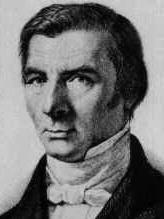
Frederic Bastiat deserves a place on our honour roll in a way similar to Jefferson. Bastiat penned a class work The Law, which when it appeared in the middle of the 19th century was one of the clearest expositions of classical liberalism available. Bastiat, a member of the French Assembly, was a tireless advocate of free trade and opponent of the tyranny of socialism. But it was The Law which continued to impact millions of people over the next century and a half.

Thinking of Bastiat brings up the duo of Richard Cobden and John Bright. It is almost impossible to think of one without thinking of the other. The two men worked as a team. And they shattered the old English system of Mercantilism in favour of free trade. The first wave of globalisation is due to their efforts. They were tireless advocates of the working class of England and saw how protectionism favoured the landed aristocracy to the detriment of the poor. They built the first truly working class movement with the Anti-Corn Law League. In fact their success is galvanising the workers of England in favour of liberalism is one reason socialists intentionally decided to relabel their ideology as being liberal. They helped raise the standard of living of England’s workers more than any one else.
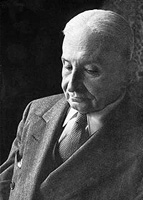
The next name that comes to mind is one familiar to all libertarians who have done any reading. It is Ludwig von Mises. And for Mises it is difficult to single out any one contribution. And that is because he made so many. Let us start out with book Socialism which demolished the socialist ideal and which persuaded Hayek to abandon this love for the ideas of the Left. His essays on the anti-economic perspective of socialism created a debate that lasted throughout most of the last century and the collapse of the the socialist states vindicated Mises. And one shouldn’t mention his demolition of socialism without mentioning his book offering the alternative: Liberalism.
Next we can’t ignore how Mises was the great advocate of laissez faire during a time when the world had forgotten the idea. Mises never surrendered intellectually and he kept the flame burning and eventually inspired new generations of economists.
And a third, but his last, contribution was that Mises was a great teacher of teachers. His most famous pupil was FA Hayek but he was a major influence directly on such individuals as Fritz Machlup, Henry Hazlitt, Israel Kirzner. Ludwig Lachmann and others. Through his book Mises directly influenced the ideas of thousands of economists and hundreds of thousands of the general population.
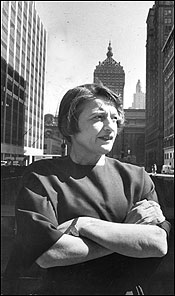
No list of important influences on liberty could leave off Ayn Rand. Love her or hate her she was a major influence on the libertarian movement. Rand’s great contribution was that she was a top notch populariser of libertarian ideas. She reified the ideas of liberty through her novels. And those novels were a major influence for the revival of classical liberal thinking in the West. Unfortunately some of her followers, including some she approved of, have also harmed the cause of liberty my acting more like fundamentalist cultists than anything else.
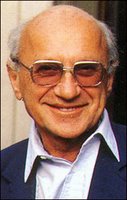
I would certainly add Milton Friedman to the list. But like Rand it is not Friedman’s theories which are his most important contribution. It is his ability to communicate libertarian ideas. Friedman could always explain things well and always appeared the gentleman when doing so. Even when he slices an opponents views apart he does so with a smile. And that counts for something. Friedman’s great contributions were his general promotion of a libertarian social order even though he most well known for his monetarist economics.

Next on my list is a figure who is obscure for most libertarians: Antony Fisher. Fisher was a businessman who became rather successful. He read Hayek’s Road to Serfdom and wanted to do something to reverse the trend and considered running for political office. But a conversation with Hayek instead persuaded him to consider the role of think tanks instead. Fisher went on to found the Institute for Economic Affairs in London and dozens of other such institutions and networks over the years. Unfortunately not all these think tanks are libertarian though they all are free market generally.

In similar vein we can’t complete a list like this without recognising the work of Leonard Read. Read penned many essays on libertarianism but none were particularly important with the exception of his brilliant I, Pencil. And quite honestly often his writing could be rather dull. But Read founded the Foundation for Economic Education in 1946, the first libertarian think tank in the world. This one project of his has influenced large numbers of libertarian thinks. Read helped Mises get established as a thinker in the United States and helped popularise his work. And countless numbers of people had their ideas forged in the furnace through Read’s publication The Freeman, which made our list of the 5 most important publications to read today.
That’s my list of the ten most important individuals who influenced liberty and the libertarian movement. Not all of them are academics and their influence ranged from the ideas they thought, the means they used to spread ideas, and the influence they had on others. To rank them would be impossible. But I suspect that Mises would be at the top of the list followed by Hayek. But from that point on I couldn’t possible rank these people.
 DiggIt!
DiggIt! Reddit
Reddit Del.icio.us
Del.icio.us

<< Home